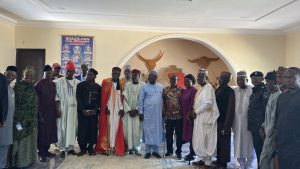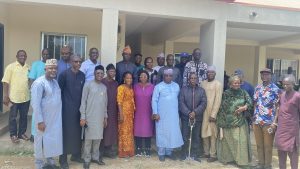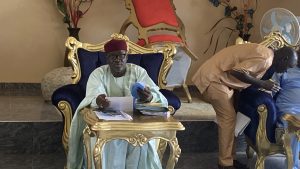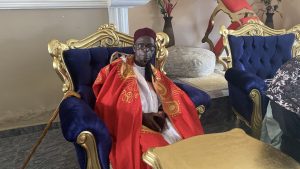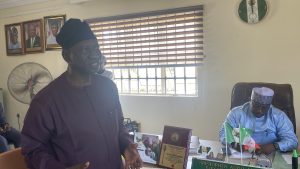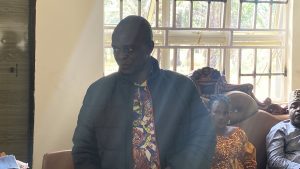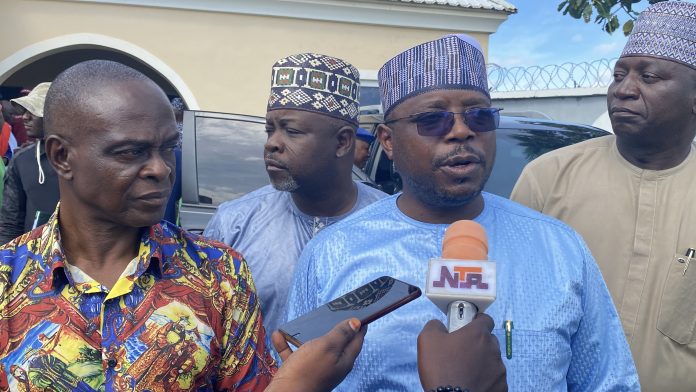The Plateau State Fact-Finding Committee has identified kidnapping, armed robbery, and porous border security as key issues troubling Qua’an-Pan Local Government Council in Plateau State. This was revealed during the committee’s visit to the area on Tuesday, July 22, 2025, as part of its Southern Zone security assessment tour.
Led by retired Major General Nicholas Rogas, the committee was received by the Executive Chairman of Qua’an-Pan LGC, Hon. Christopher Audu Manship, who outlined the security challenges faced by the council—most of which are linked to its strategic location bordering multiple LGAs and states.
“Qua’an-Pan has not experienced coordinated armed invasions like Mangu or Bassa, but our situation is no less serious. We face persistent cases of kidnapping, robbery, and criminal movements through our border communities,” Manship said.
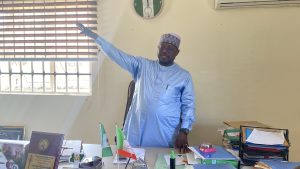
He explained that the Pandam Forest in Namu district had previously served as a criminal hideout and transit route for armed groups. Though recent efforts by his administration and security agencies have reduced such incidents, he noted that the area’s vulnerability persists due to shared boundaries with Nasarawa, Shendam, Bokkos, and Mangu.
“We used to have daylight robberies—three to four times a day. But today, through community policing, intelligence sharing, and inter-LGA cooperation, we’ve significantly curbed that. For the past few months, we’ve not recorded major incidents,” he stated.
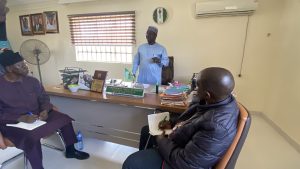
The chairman also raised concerns about other emerging threats including:\n- Open grazing disputes.\n- Isolated murders, including the killing of a village head.\n- Traditional leaders allegedly demanding fees from herders to graze.\n- Fear-driven farmland abandonment due to crises in neighboring areas.
He recalled past communal conflicts in Namu (2005–2006), Kundung (2003–2004), and Sabon Jida, as well as the more recent destruction of crops in the border area of Loon. “These are internal and external pressure points we must keep watching,” he noted.
The committee also held a private meeting at the palace of the Acting President of the Qua’an-Pan Traditional Council, Long Jan Safianu Alananan, alongside the Long Kwo, Amb. Yahaya Kwande. Security heads, traditional rulers, and religious leaders participated in the deliberation.
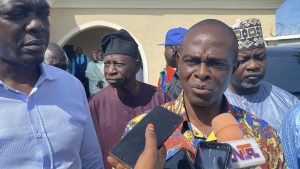
Maj. Gen. Rogas commended the local government council and security architecture in Qua’an-Pan, describing their efforts as effective and worthy of emulation.
“What we’ve seen here shows that good local leadership makes a difference. There is coordination between traditional institutions, security agencies, and the council. That’s why this place is relatively calm,” he said.
Chairman Manship reaffirmed his commitment to sustaining peace and expanding collaboration with neighboring councils in Nasarawa State. He expressed hope that the committee’s findings would lead to actionable government policies.
“This engagement gives our people hope. We trust that this committee will produce a fair and objective report. We’ve done our part, and we’re ready to do more,” he added.
The visit to Qua’an-Pan marks the beginning of the committee’s fact-finding mission in Plateau State’s Southern Zone, aimed at informing policy through grassroots dialogue.

